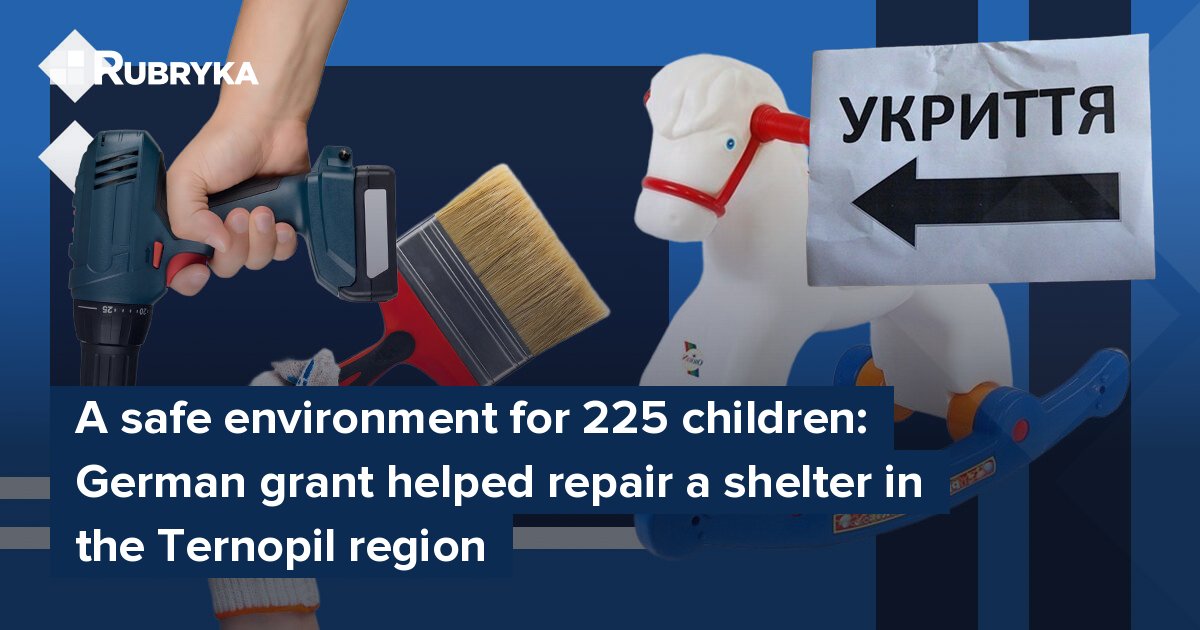
What is the problem?
As of the beginning of the great war, according to the State Emergency Service of Ukraine, there were slightly more than 21,000 civil defense protective structures in Ukraine, of which 74% were assessed as ready and partially ready for use as intended, 26% as not ready at all.
This problem was and remains relevant for large cities and small communities. Its solution also directly affects the community's ability to create a safe, educational environment. In particular, as of the autumn of 2022, 53% of kindergartens had their own shelters, 10% used objects from the fund of protective structures of other institutions, and 37% did not have such protective structures at all.
What is the solution?
Arrangement of shelters with the help of grant funds
The state provided ₴1.5 billion in subventions to local budgets to provide safe conditions in secondary education institutions. However, in preschool education institutions, communities have to arrange shelter mostly independently.
Due to limited budgets, local authorities are trying to attract donors or philanthropic assistance. This is how they operate in the Pidvolochysk settlement community in the Ternopil region.
Thanks to a grant from the Federal Republic of Germany and co-financing from the local budget in Pidvolochysk, the anti-radiation shelter in the community's largest kindergarten was qualitatively repaired in a few months.
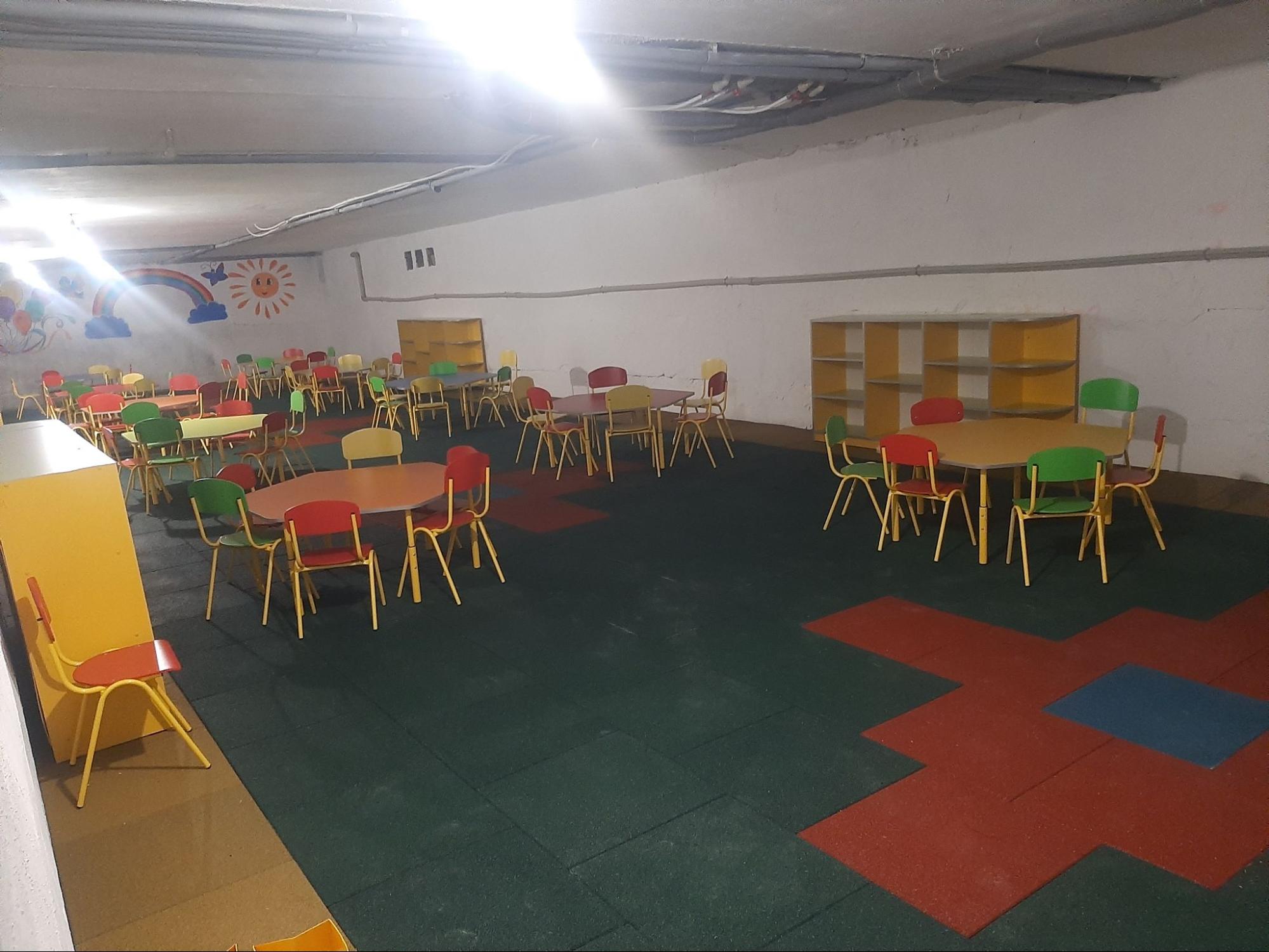
The renovated shelter in the Pidvolochysk kindergarten
Розповідаємо, як громаді це вдалося.
There were not enough local funds for repairs
There are four anti-radiation shelters in educational institutions of the Pidvolochysk community: three in general secondary schools and one in a kindergarten of Pidvolochysk. At the beginning of a full-scale war, the latter did not meet the requirements to function as a full-fledged shelter.
Therefore, the education department of the Pidvolochysk settlement council rolled up its sleeves and started actively looking for opportunities to repair shelters, says Halyna Sakevych, the head of the department.
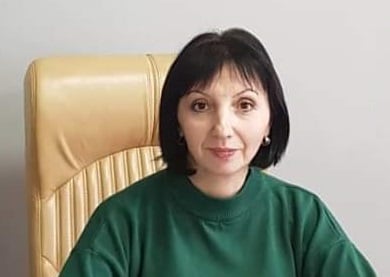
Head of the Education Department of the Pidvolochysk Settlement Council, Halyna Sakevych
The problem was significant — funds were allocated from the local budget for purchasing first-aid kits, recharging and purchasing fire extinguishers, and replacing windows and doors. Still, there were not enough local resources for a full-fledged repair.
Nataliia Havrylyshyn, the head of the social development department, which is part of the education department of the village council, began to actively monitor social networks for grant opportunities and projects.
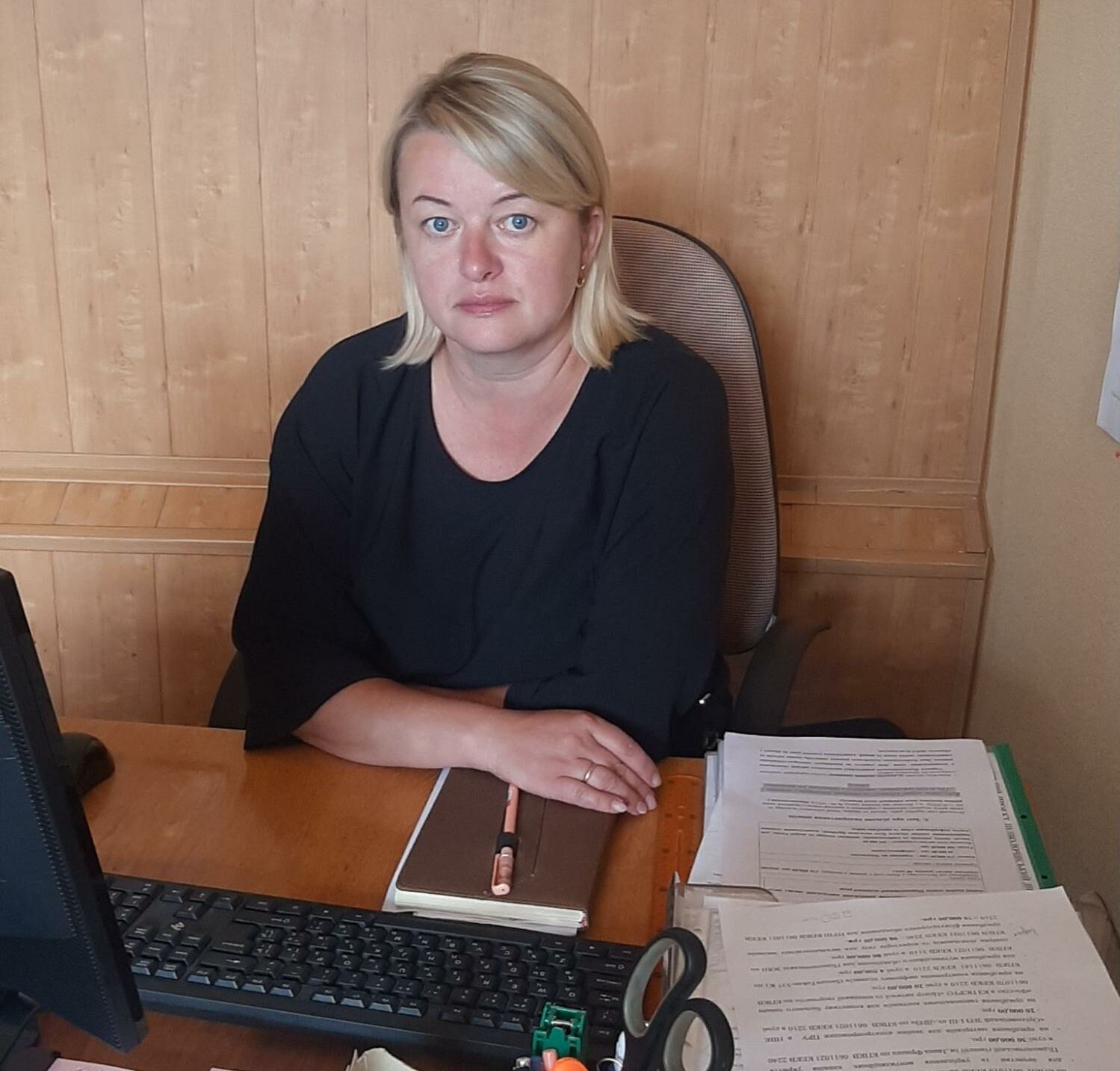
Nataliia Havrylyshyn, head of the social development department, writes and submits grant applications
How does it work?
The community has already had successful cooperation with the grantor
In the end, Havrylyshyn found an announcement about the possibility of grant support from the embassy of the Federal Republic of Germany. The education department already had previous experience of successful cooperation with the embassy: in 2020, they won and implemented a grant on the topic Modern school, modern dining room — healthy children. Representatives of the embassy came to Pidvolochysk after submitting the application, and after that, the project was prepared and implemented in the education department.
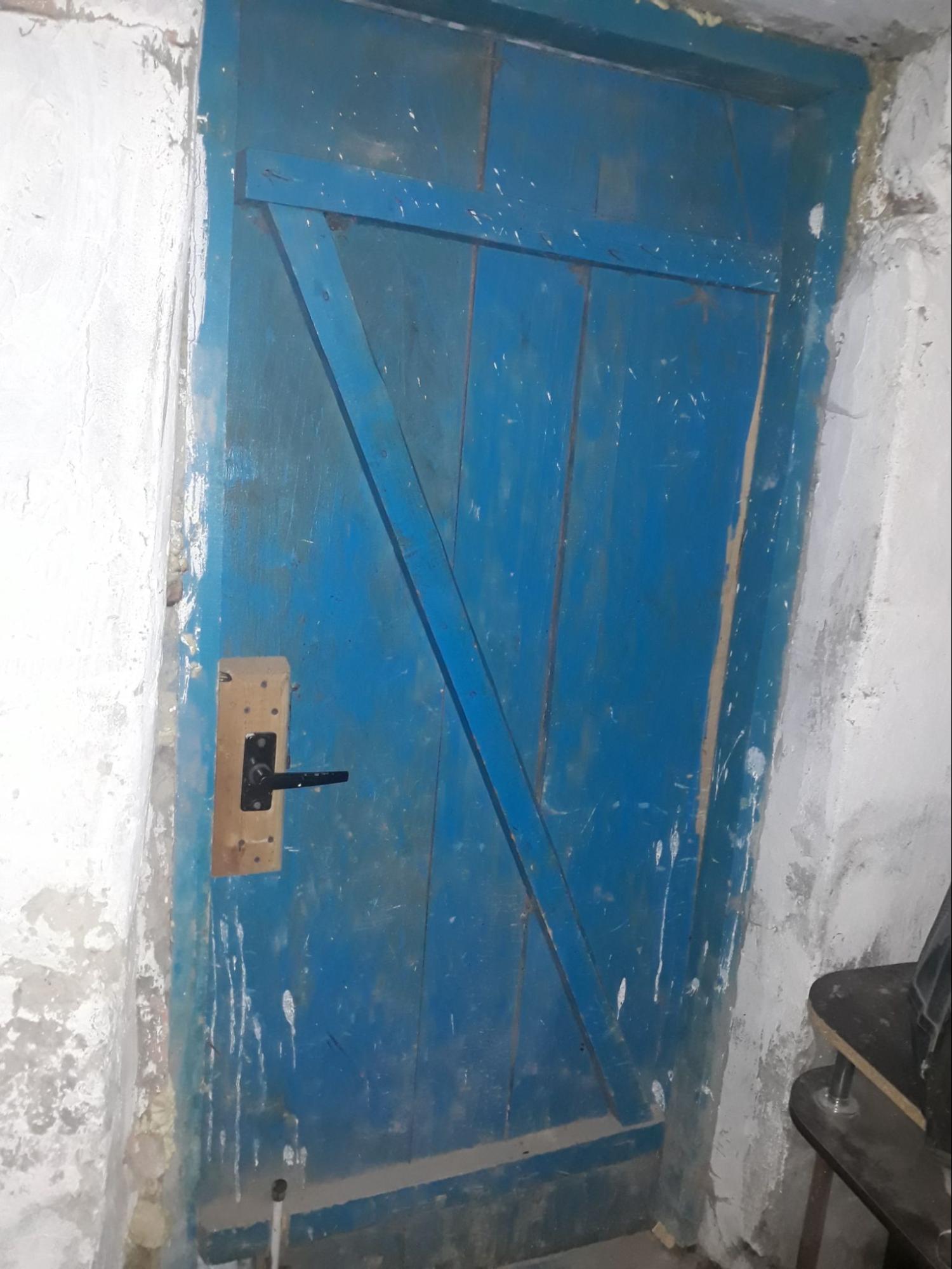
The entrance to the shelter in the kindergarten before the renovation
The current grant application was submitted at the beginning of spring, received a positive response in April, and the work was completed in the summer.
"When we received a grant from the German embassy for repairing an anti-radiation shelter for our kindergarten, our joy knew no bounds," says Sakevych.
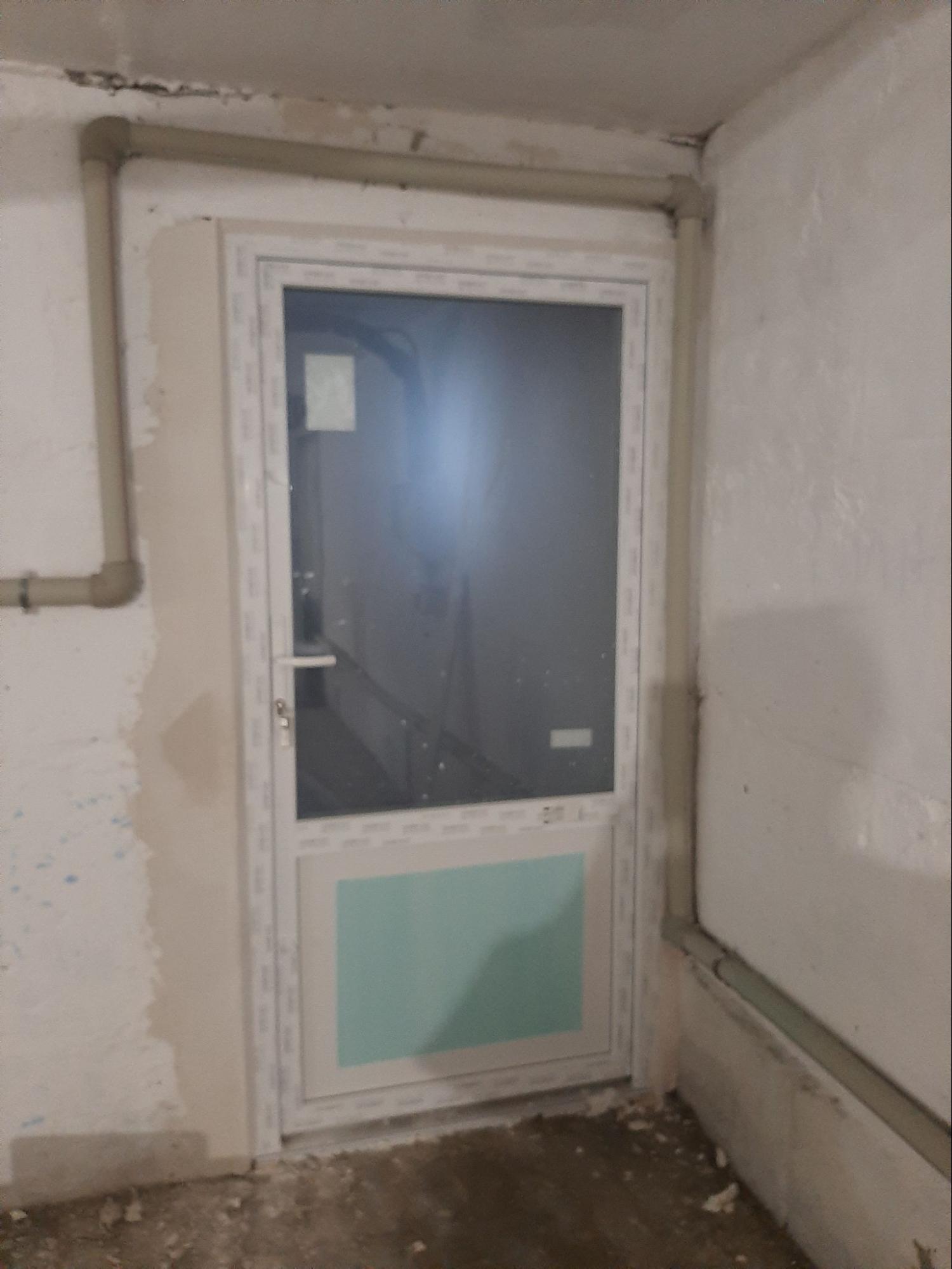
The door in the shelter in the kindergarten after repair
The condition for providing assistance is co-financing
Under the terms of the grant, the Embassy of Germany allocated ₴270,000, and another ₴30,000 were allocated from the local budget. In particular, cobblestones were installed on the shelter floor at the local budget's expense because the surface was uneven before the repair.
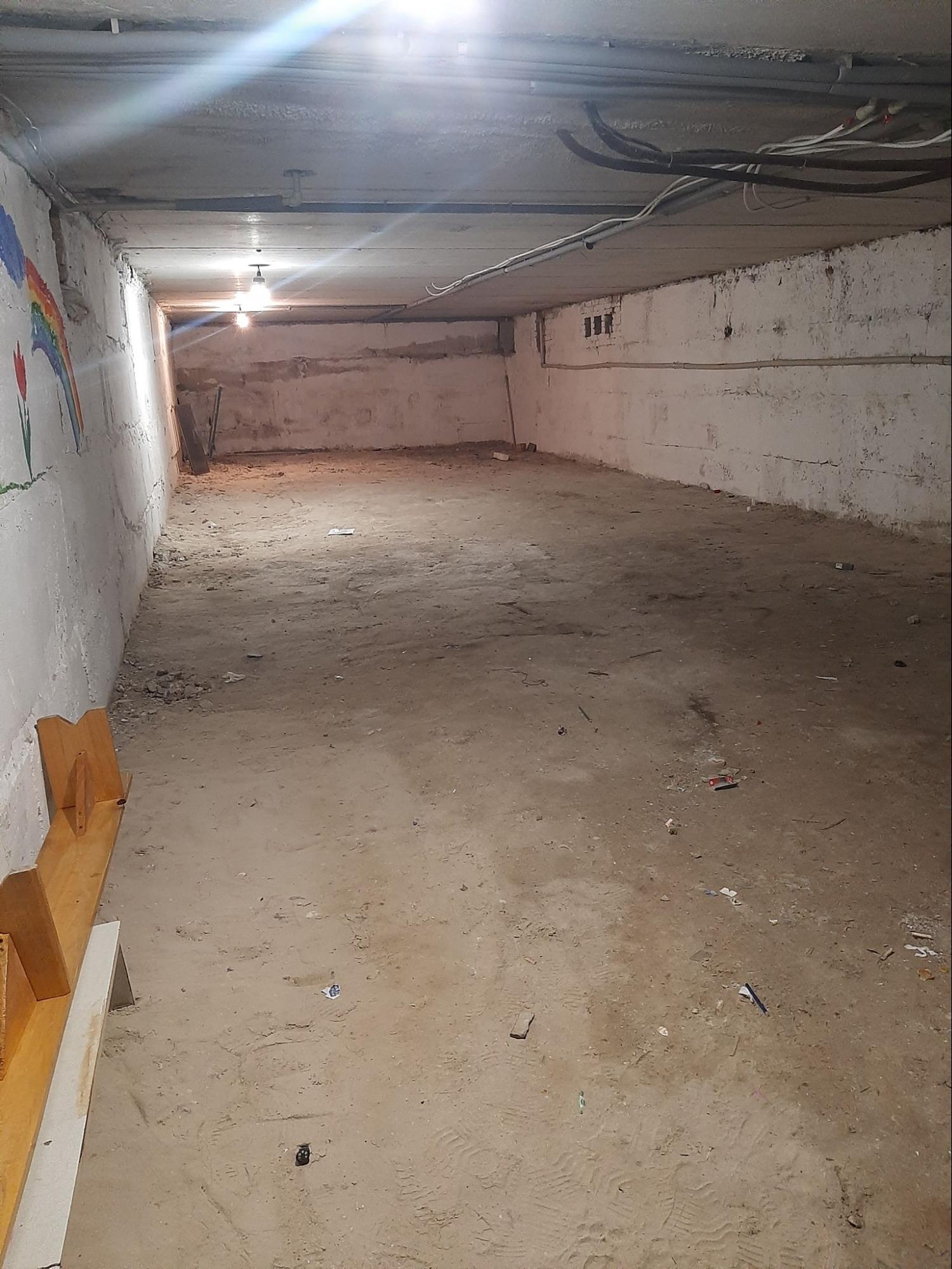
Shelter before the repair
Thanks to the grant funds, the doors and sanitary ware were replaced, rubber flooring was installed on the floor, new furniture was bought, and other repairs were carried out.
Sakevych says: "We understand that there is still much to improve, but for this, we need even more funds. Now children will feel safe in kindergarten, and we are very happy about that."
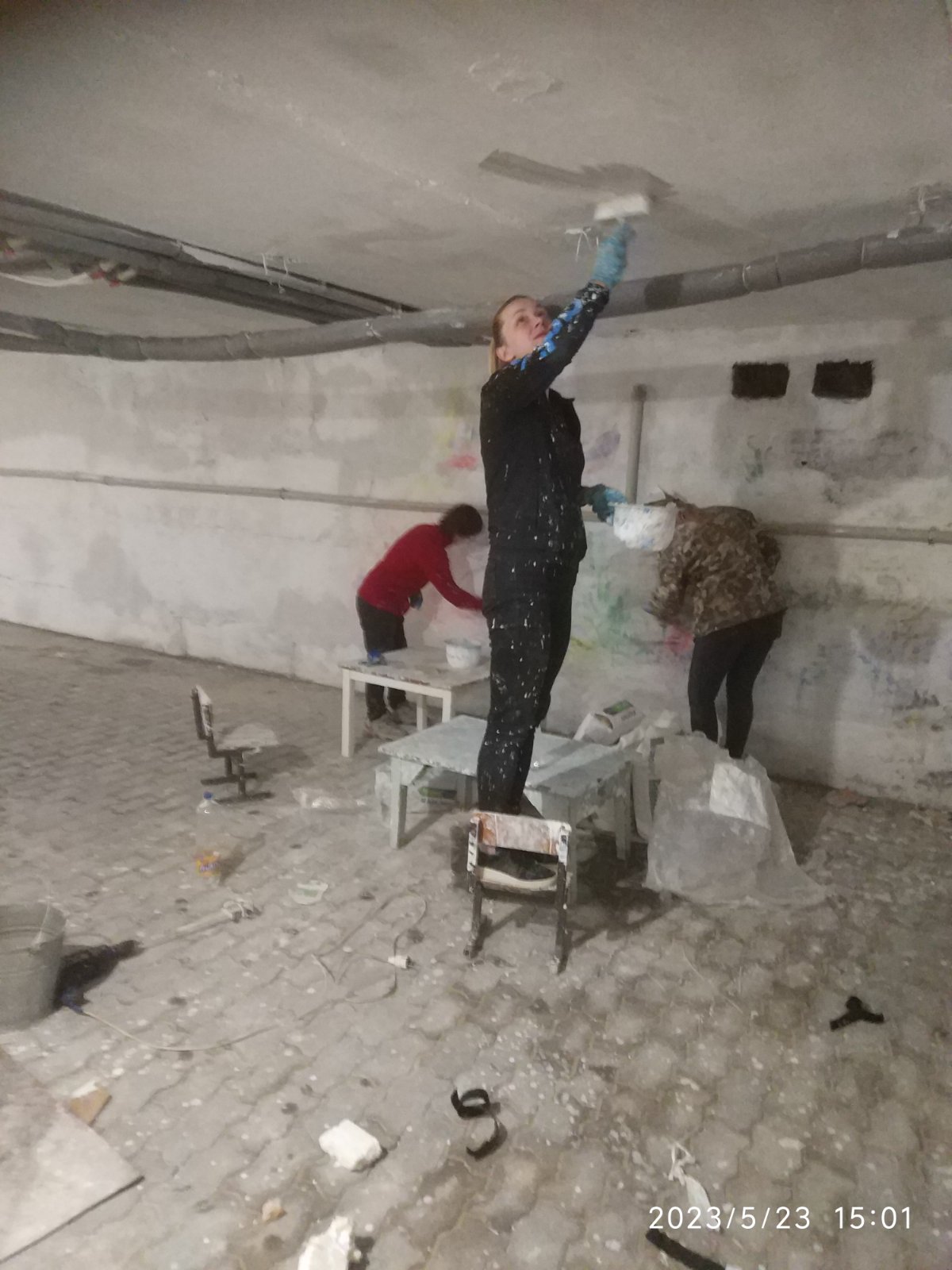
Shelter repairs were in full swing in May
This is the largest kindergarten in the community — as of the beginning of 2022, 225 pupils attended it. At the beginning of the full-scale war, the institution switched to working in a mixed mode, but it already resumed its usual work in April last year. Now the preschool is attended by both local children and those forcibly relocated to the community due to the war.
"We do everything to ensure that children remain in the community"
The head of the education department of the Pidvolochysk settlement council mentions another big problem: there are fewer and fewer children in the community. Even the quantitative indicators that the department had as of May of this year have already changed downwards in August.
"Unfortunately, the children are leaving. These are circumstances beyond our control," Sakevych told Rubryka. "We do everything to ensure that the children are here. For example, students of the first — fourth grades eat free of charge, and we actively develop extracurricular education — a center for children's and youth creativity, a sports school, and an inter-school industrial plant. In other words, the community is powerful. After school, children attend various groups and sections, successfully perform at various competitions, and even become prize-winners of all-Ukrainian sports competitions, such as freestyle wrestling."
The renovated anti-radiation shelter occupies three rooms. Thanks to the rubber coating, one of them is planned to be used for sports after Ukraine's victory.
"Implementation of the project must be fast and accurate"
Unfortunately, you are not always lucky to get a grant application approved.
"Some say that writing projects is easy — believe me, it's not. It is not very difficult to apply: indicate the number of pupils and estimate what we need to implement, but the implementation of the project itself must be fast and accurate," Sakevysh explains. "All this must be clearly reported. Therefore, we thank the German embassy for the fact that they are once again cooperating with us, and we hope that the cooperation will continue."
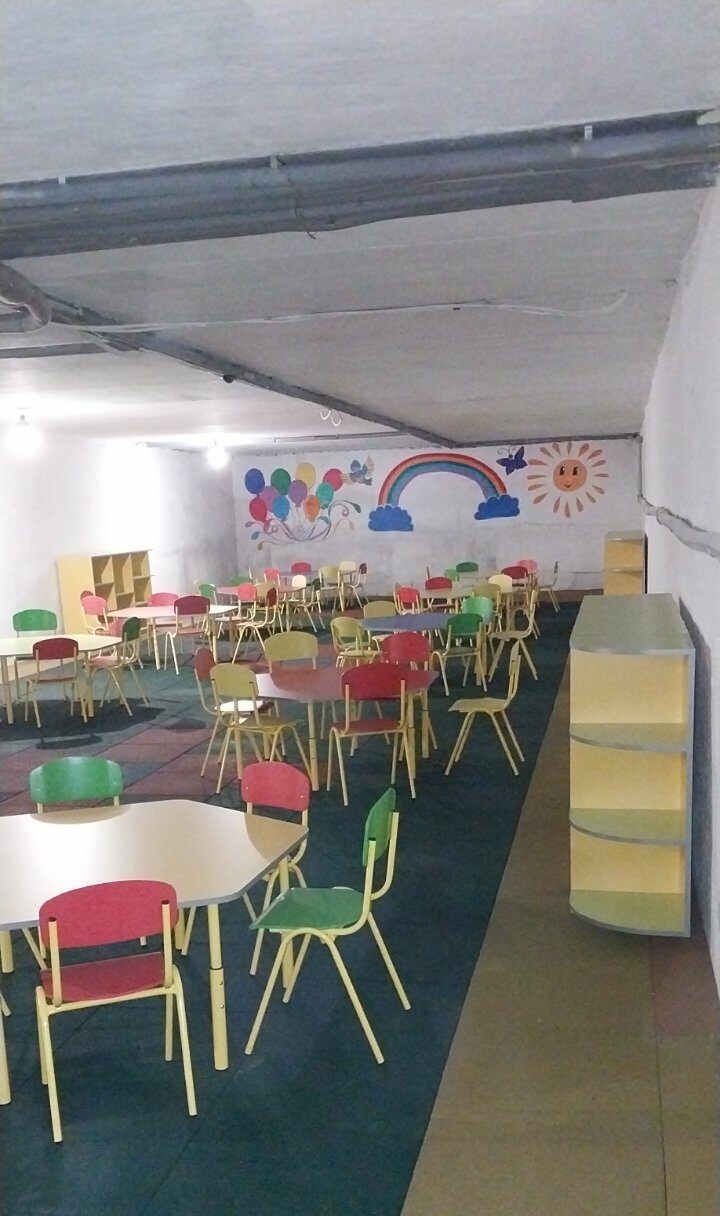
The shelter of the largest kindergarten in the Pidvolochysk community became a safe environment after its repair
With the support of the Embassy of the Federal Republic of Germany, another important solution was implemented in the Pidvolochysk community. Generators were purchased for general secondary and preschool, and after-school education institutions, which may be needed next winter. Co-financing was also a mandatory condition of the project: the embassy allocated ₴180,000 for the generators, and the local government — ₴20,000 for fuel and lubricants.
Donors are being sought to repair other shelters
Ivan Franko Lyceum in Pidvolochysk also has a large anti-radiation shelter. In it, a ventilation shaft destroyed by a storm 15 years ago was rebuilt at the expense of the local budget. The ventilation system will be fully restored by the beginning of the academic year. Also, the ventilation systems were restored in the shelters of the Kachanivskyi and Orihoveskyi lyceums. There is a need to repair the floor coverings there and install educational equipment, but millions of hryvnias are needed for this.
Sakevych says: "My colleague and I are constantly looking for all the possibilities of grant support because we understand that education is already costly for the local budget. After all, we do not have enough educational subvention to pay wages, and the local budget allocates funds for this. We are looking for donors for our community."
This article was published as part of the Voice of Communities campaign, which is part of the Program for Ukraine on local empowerment, accountability, and development U-LEAD with Europe, jointly funded by the EU and its member states Germany, Poland, Sweden, Denmark, Estonia, and Slovenia to support Ukraine on its way to strengthening local self-government. U-LEAD promotes transparent, accountable, and multi-level governance in Ukraine that responds to the needs of citizens and empowers communities.
Photos provided by the education department of the Pidvolochysk settlement council


